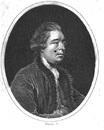Planning worship?
Check out our sister site, ZeteoSearch.org,
for 20+ additional resources related to your search.
- |
User Links
Search Results
In sleep's serene oblivion laid
Author: James Hawkesworth Appears in 117 hymnals Topics: Morning and Evening; Morning Used With Tune: GERMANY
In sleep's serene oblivion laid
EVENING HYMN
Appears in 478 hymnals Composer and/or Arranger: Thomas Tallis Incipit: 11711 22343 14433 Used With Text: In sleep's serene oblivion laid
EVENING HYMN
FEDERAL STREET
Appears in 636 hymnals Incipit: 33343 55434 44334 Used With Text: In sleep's serene oblivion laid
FEDERAL STREET
In sleep's serene oblivion laid
Hymnal: A Collection of Hymns and A Liturgy #401 (1814) Meter: 8.8.8.8 Lyrics: 1 In sleep's serene oblivion laid,
I safely pass'd the silent night:
Again I see the breaking shade,
I drink again the morning light.
2 New-born, I bless the waking hour;
Once more, with awe, rejoice to be:
My conscious soul resumes her pow'r,
And springs, my guardian God! to thee.
3 O guide me through the various maze,
My doubtful feet are doom'd to tread;
And spread thy shield's protecting blaze,
Where dangers press around my head.
4 A deeper shade shall soon impend;
A deeper sleep my eyes oppress:
Yet then thy strength shall still defend,
Thy goodness still delight to bless.
5 That deeper shade shall break away;
That deeper sleep shall leave my eyes:
Thy light shall give eternal day;
Thy love, the raptures of the skies. Topics: Particular Occasions and Circumstances Morning Languages: English
In sleep's serene oblivion laid
In sleep's serene oblivion laid
Hymnal: Hymns, Selected and Original #617 (1828) Meter: 8.8.8.8 Lyrics: 1 In sleep's serene oblivion laid,
I safely pass'd the silent night:
Again I see the breaking shade,
I drink again the morning light.
2 New-born, I bless the waking hour,
Once more, with awe, rejoice to be:
My conscious soul resumes her pow'r,
And springs, my guardian God! to thee.
3 O guide me through the various maze
My doubtful feet are doom'd to tread;
And spread thy shield's protecting blaze,
Where dangers press around my head.
4 A deeper shade shall soon impend:
A deeper sleep my eyes oppress:
Yet then thy strength shall still defend,
Thy goodness still delight to bless.
5 That deeper shade shall break away;
That deeper sleep shall leave my eyes:
Thy light shall give eternal day;
Thy love, the raptures of the skies. Topics: The Lord's Day Morning; The morning emblematic of eternal day
In sleep's serene oblivion laid
In sleep's serene oblivion laid
Hymnal: A Collection of Psalms and Hymns for Social and Private Worship #XCVII (1823) Languages: English
In sleep's serene oblivion laid
Ludwig van Beethoven

1770 - 1827 Person Name: Ludwig von Beethoven Composer of "GERMANY" in The Praise Hymnary A giant in the history of music, Ludwig van Beethoven (b. Bonn, Germany, 1770; d. Vienna, Austria, 1827) progressed from early musical promise to worldwide, lasting fame. By the age of fourteen he was an accomplished viola and organ player, but he became famous primarily because of his compositions, including nine symphonies, eleven overtures, thirty piano sonatas, sixteen string quartets, the Mass in C, and the Missa Solemnis. He wrote no music for congregational use, but various arrangers adapted some of his musical themes as hymn tunes; the most famous of these is ODE TO JOY from the Ninth Symphony. Although it would appear that the great calamity of Beethoven's life was his loss of hearing, which turned to total deafness during the last decade of his life, he composed his greatest works during this period.
Bert Polman
Ludwig van Beethoven
Thomas Tallis

1505 - 1585 Composer of "EVENING HYMN" in Christian Chorals Thomas Tallis (b. Leicestershire [?], England, c. 1505; d. Greenwich, Kent, England 1585) was one of the few Tudor musicians who served during the reigns of Henry VIII: Edward VI, Mary, and Elizabeth I and managed to remain in the good favor of both Catholic and Protestant monarchs. He was court organist and composer from 1543 until his death, composing music for Roman Catholic masses and Anglican liturgies (depending on the monarch). With William Byrd, Tallis also enjoyed a long-term monopoly on music printing. Prior to his court connections Tallis had served at Waltham Abbey and Canterbury Cathedral. He composed mostly church music, including Latin motets, English anthems, settings of the liturgy, magnificats, and two sets of lamentations. His most extensive contrapuntal work was the choral composition, "Spem in alium," a work in forty parts for eight five-voice choirs. He also provided nine modal psalm tunes for Matthew Parker's Psalter (c. 1561).
Bert Polman
Thomas Tallis
John Hawkesworth

1715 - 1773 Person Name: James Hawkesworth Author of "In sleep's serene oblivion laid" in The Praise Hymnary Hawkesworth, John, LL.D. (b. 1715, and d. Nov. 1773), a writer in the Gentleman's Magazine, proprietor and editor of the Adventurer, and friend of Johnson, Warton, and other literary men of note, published, in 1760, Poems and Translations, and was the author of the well-known Morning hymn "In sleep's serene oblivion laid." This hymn was composed in 1773, "about a month before his death, in a wakeful hour of the night, and dictated to his wife on rising. It appeared in the Universal Theological Magazine for March, 1802." (Miller's Singers & Songs, &c, p. 210.) It was given in Collyer's Selection, 1812; the Leeds Hymn Book, 1853; and others; and is in somewhat extensive use in America. It sometimes begins, as in the American Unitarian Hymns for the Church of Christ, 1853, with stanza ii., "Newborn, I bless the waking hour."
-- John Julian, Dictionary of Hymnology
John Hawkesworth


 My Starred Hymns
My Starred Hymns


